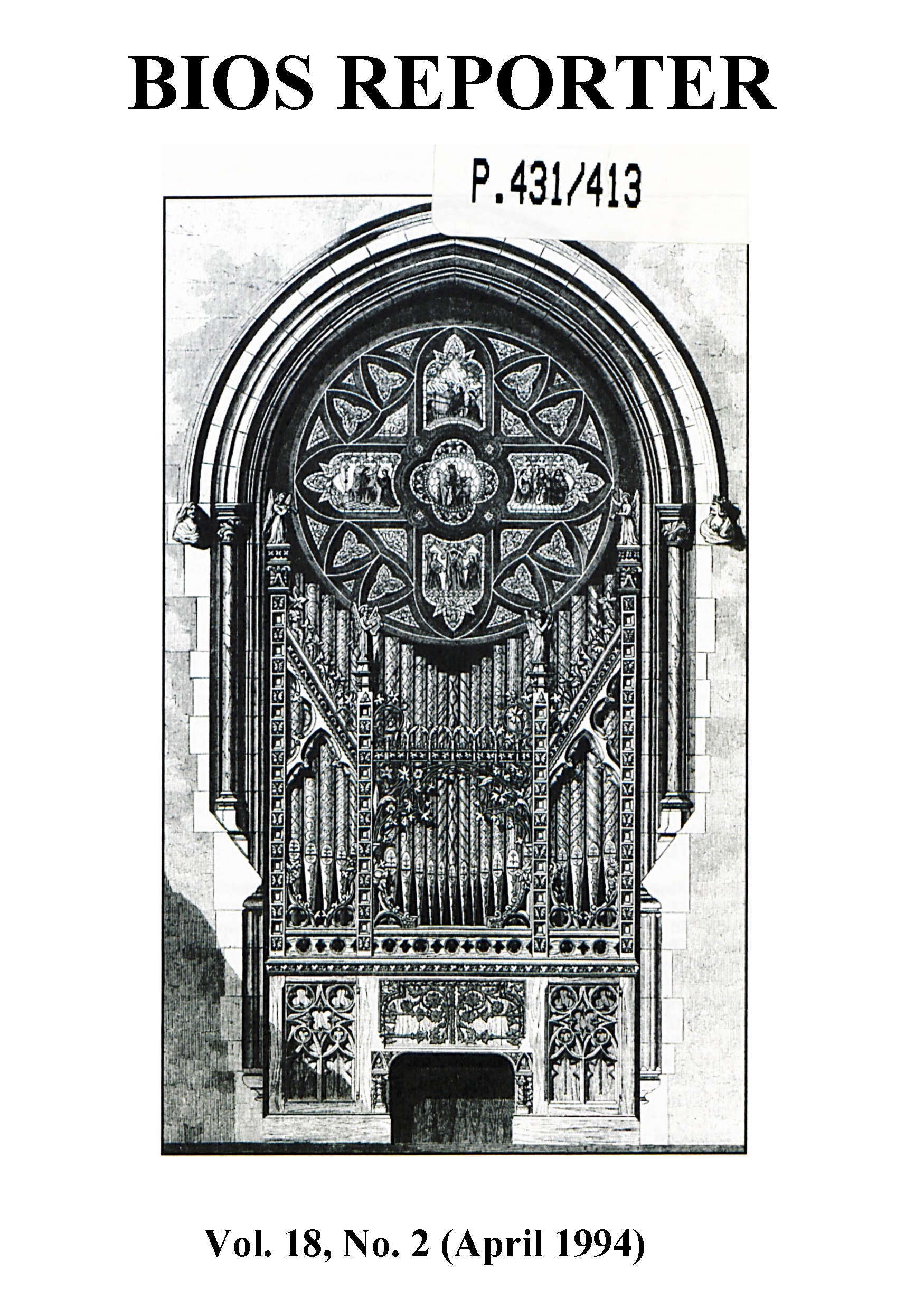The third of the Society’s aims includes the phrase “historic organs”. What does it mean? It was briefly considered at the January meeting of Council, in connection with a proposal to draw up guidelines on the conservation of such instruments, and though it can hardly be said to have created division, there was no consensus as to its precise meaning. One suggestion, based presumably on one of the criteria adopted by the Organs Advisory Committee of the Council for the Care of Churches, was that in order to be classed as ‘historic’ an organ had to date from before 1914. Many will react to that suggestion with unease, feeling instinctively that the great inter-war instruments of Henry Willis III, Hill, Norman & Beard, Harrison & Harrison and others cannot be excluded from the ambit of what is worthy of preservation, faithful restoration and objective, scholarly consideration. That unease inevitably grows when one considers the post-war period, for the organ in the Royal Festival Hall, opened in 1954, played a most important part in the history of the British organ, breaking the mould of the British concert organ in the twentieth century, and showing a leading maker departing from its traditional practices so far as tonal design, scaling and voicing were concerned. The organ in The Queen’s College, Oxford falls into a similar category, breaking the mould of organs in Oxbridge and introducing aspects of continental practice into that (musically) somewhat insular environment. Any attempt to discard, revoice or interfere in any way with these and similar instruments would be viewed with grave concern, and it would be a curious and unsatisfactory definition that narrowed ‘historic organs’ so as to exclude them. But a definition would be equally unsatisfactory – indeed, it would be absurd – if it restricted ‘historic organs’ to those that made history: very few instruments have broken moulds, or spawned new philosophies of organ design, organ playing, and organ composition, the vast majority having made history only at a local level, if at all…
